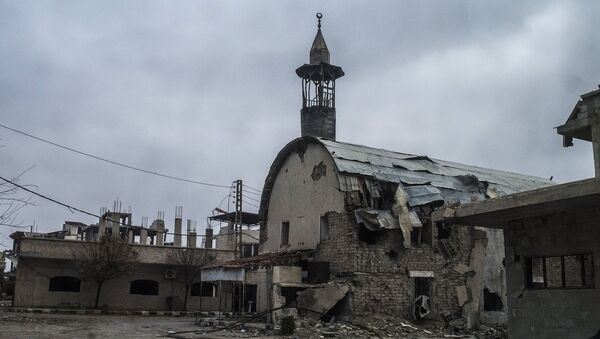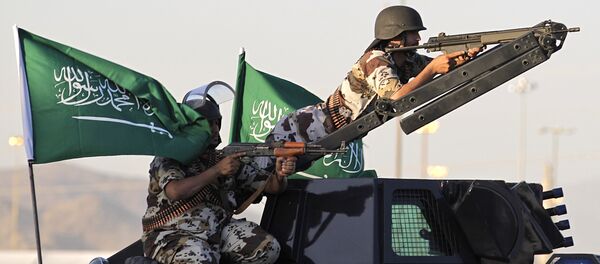“The Saudis are trying to get diplomatic leverage. They have their own objectives in Syria, which are not identical to those of the US,” he told Radio Sputnik.
“In particular, they are much more concerned about defeating the Assad government and whereas the US wants to see a secular government established in Syria, the Saudis much prefer to have an Islamic government there, aligned with them.”
“They are basically putting down a marker in the political negotiations and that is why they set up this coalition.”
The expert however doubts that “this particular ploy will work.” He explained that there are already two coalitions fighting Daesh in Iraq and Syria. One is led by Russia, the other – by the US. So the third one, he is convinced, does not have enough substance to it.
“What hopefully it will do is create enough common ground between the US and Russia and various allies of each country so that they can work together to eliminate Daesh in Syria and Iraq. From there on, there will also have to be a framework towards a peace agreement in Syria, But, I suspect that it is going to take a lot longer and will be a lot more difficult.”
Mercouris also noted that Russia is gradually coming around to the view that unless it increases pressure on Turkey, the situation in Syria with Daesh is not going to be resolved very easily.
“I think they are pursuing a policy towards Turkey that is both based on anger about the downing of the airplane, but also has a very strong element of political calculation behind it.”
“They [Russians] feel that they have to thrash the Turkish government and also persuade Turkey’s various allies, the US especially, to come down heavily on Turkey. And we saw that with the talk of the UN resolutions and the negotiations that are now underway to that way. I think that this policy is beginning to pay off,” he stated.



